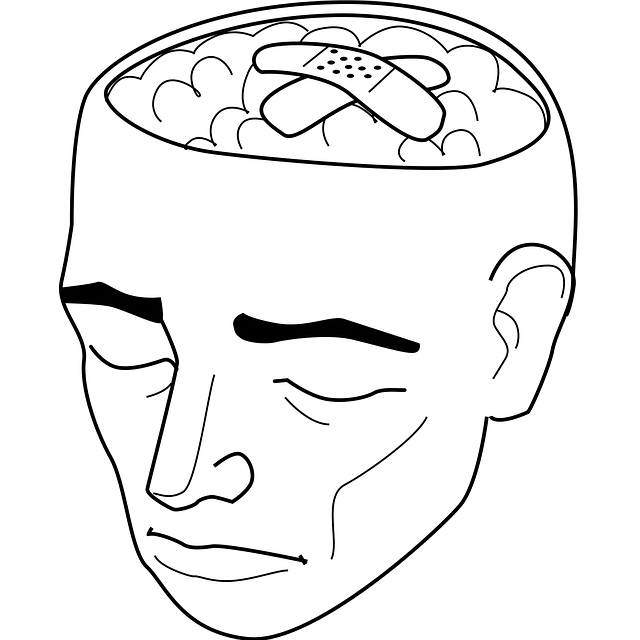Castle Rock Sexual Abuse Survivor Therapy (CRSAT) offers specialized support for sexual trauma survivors, focusing on emotion regulation techniques and personalized strategies. Through evidence-based approaches like cognitive-behavioral therapy and mindfulness meditation, clients learn to process traumatic memories, develop healthy coping mechanisms, and build resilience. CRSAT's holistic approach empowers individuals to regain control over their emotional well-being, fostering mental wellness and personal growth for long-term recovery.
Emotion regulation techniques are crucial tools for survivors of sexual abuse, offering a path towards healing and resilience. This article explores various strategies tailored to help individuals manage their emotional well-being, focusing on the transformative power of Castle Rock Sexual Abuse Survivor Therapy. We delve into understanding emotional regulation, its role in therapy, effective management techniques, and creating personalized strategies for long-term success. By applying these skills, survivors can build resilience and embark on a journey of healing.
- Understanding Emotion Regulation for Survivors of Sexual Abuse
- The Role of Castle Rock Sexual Abuse Survivor Therapy
- Techniques for Effective Emotional Management
- Creating a Personalized Strategy for Long-Term Success
- Building Resilience and Healing Through Skill Application
Understanding Emotion Regulation for Survivors of Sexual Abuse

Surviving sexual abuse can be a profoundly traumatic experience, leaving individuals with complex and often overwhelming emotional responses. Understanding and regulating these emotions is a critical step in the healing process for Castle Rock Sexual Abuse Survivor Therapy clients. Emotion regulation techniques empower survivors to manage their feelings effectively, fostering mental wellness and promoting self-awareness exercises that are essential for personal growth.
Through specialized therapy programs, mental wellness coaching becomes a powerful tool. These programs help survivors develop strategies to recognize and respond to their emotions in healthy ways. By integrating self-awareness exercises into their daily lives, survivors can begin to understand the root causes of their emotional responses, enabling them to make informed decisions about their mental wellness. This journey towards healing is not just about overcoming trauma but also about building resilience and reclaiming control over one’s emotional landscape.
The Role of Castle Rock Sexual Abuse Survivor Therapy

Castle Rock Sexual Abuse Survivor Therapy (CRSAT) plays a pivotal role in empowering individuals who have experienced sexual abuse to reclaim their emotional well-being. This specialized therapy goes beyond traditional emotion regulation techniques by addressing the unique challenges faced by survivors. CRSAT facilitates a safe space for clients to process traumatic memories, develop healthy coping mechanisms, and enhance their overall resilience.
Through a combination of evidence-based practices, such as cognitive-behavioral therapy (CBT) and trauma-focused strategies, CRSAT helps individuals acquire essential social skills and communication techniques. These tools enable survivors to express themselves effectively, build meaningful relationships, and challenge negative thought patterns that often accompany trauma. By fostering positive thinking and self-compassion, CRSAT empowers individuals to break free from the cycle of abuse and lead fulfilling lives.
Techniques for Effective Emotional Management

Emotion regulation techniques are invaluable tools for individuals, especially those who have experienced trauma like Castle Rock Sexual Abuse Survivor Therapy clients. Learning to manage emotions effectively can help in processing past experiences and preventing them from overwhelming one’s present. One powerful method is Mindfulness Meditation, which encourages staying grounded in the current moment, observing thoughts and feelings without judgment. This practice fosters Mental Wellness by reducing reactivity to strong emotions.
Additionally, Coping Skills Development involves learning specific strategies to deal with distressing emotions. Techniques such as deep breathing exercises, progressive muscle relaxation, and cognitive reframing enable individuals to gain a sense of control over their emotional responses. By integrating these coping skills into daily life, survivors can navigate challenging situations with greater resilience and promote their overall mental wellness.
Creating a Personalized Strategy for Long-Term Success

Creating a personalized strategy for long-term emotional regulation success involves understanding one’s unique triggers and coping mechanisms. At Castle Rock Sexual Abuse Survivor Therapy, we recognize that every individual’s journey is distinct. Thus, our approach tailors techniques to specific needs, ensuring effectiveness in managing emotions over time. This process begins with introspection—identifying situations, feelings, or thoughts that significantly impact emotional well-being.
For instance, a client might discover that certain environments or interactions trigger intense reactions. Building upon this awareness, therapists collaborate closely with clients to craft strategies that address these specific triggers. These strategies may include mindfulness exercises, cognitive reframing, or communication strategies like assertiveness training—all aimed at empowering individuals to navigate emotional challenges autonomously. Incorporating confidence-boosting techniques is also vital, as it strengthens the client’s resilience and self-belief in managing their emotions effectively.
Building Resilience and Healing Through Skill Application

Emotion regulation techniques are instrumental in building resilience among survivors of sexual abuse, offering them tools to navigate their mental health landscape with greater ease. By learning to manage and express emotions effectively, individuals can heal from traumatic experiences and foster a sense of safety and empowerment. Castle Rock Sexual Abuse Survivor Therapy emphasizes the power of skill application in this process, providing clients with practical strategies to cope with distressing memories, anger, or anxiety. These techniques are tailored to individual needs, ensuring that each survivor develops a personalized toolkit for emotional well-being.
The integration of emotion regulation into therapy goes beyond mere coping mechanisms; it forms the foundation for long-term mental health recovery. In the context of a supportive therapeutic environment, survivors can gradually confront and process their trauma, replacing negative patterns with adaptive responses. This journey towards healing is further enhanced through community outreach programs that promote mental health policy analysis and advocacy, ensuring resources and support systems are accessible to all who need them. Additionally, confidence-boosting initiatives within these communities create a network of peers who understand the challenges faced, fostering a sense of belonging and encouragement for continued growth.
Emotion regulation techniques, as demonstrated through Castle Rock Sexual Abuse Survivor Therapy, offer survivors of sexual abuse a powerful tool for healing. By understanding their emotions and learning effective management strategies, individuals can create personalized plans for long-term resilience. With dedicated practice, these skills enable folks to navigate life’s challenges with enhanced coping mechanisms, fostering a profound sense of recovery and well-being.














